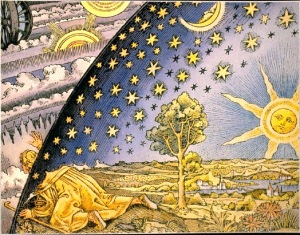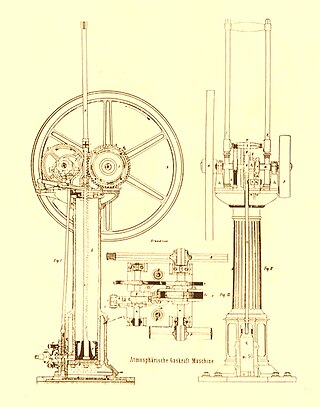Ann wrote:I love the 1876 Charcoal kilns under the Milky Way image. What a juxtapostion of cosmic majesty with the products of an intelligent and technological civilization on a non-interstellar communication level!
Imagine, 1876. Back then, it was known that the stars were far away, and the first star to have its parallax measured, 61 Cygni, had been shown by Friedrich Wilhelm Bessel to have a parallax already back in 1838.

Friedrich Wilhelm Bessel.
On the other hand, it was a complete mystery what made the stars shine - one belief, generally abandoned in 1876 but not really replaced with any other hypothesis, was that the stars shone by burning coal.

Who shovelled coal into the Sun to make it shine? If coal had been the energy source of the Sun, our star would have used up its energy source in 6300 years! See
http://www.ucolick.org/~bolte/AY4_00/we ... nergy.html
Let's return to 1876. Back then, nobody had yet seen this famous engraving:

That famous engraving was first published in Camille Flammarion's
L’Atmosphère: Météorologie Populaire (Paris, 1888).
But as early as 1686, Bernard Le Bovier de Fontenelle, a French astronomer, wrote his book,
Entretiens sur la Pluralité des Mondes (Conversations on the Plurality of Worlds), where he argued that the Moon was an inhabited world, full of life and hardly different at all from the Earth:
What accounts do you receive? enquired she. Those, I replied, that are given us by the learned who travel there every day by assistance of telescopes. They tell us they have discovered in the moon, earth, seas, lakes, elevated mountains, and profound abysses.
Fontenelle meditating on the plurality of worlds, painting from 1791.
Let's return to the technology of 1876. The Otto/Langen atmospheric engine existed - in fact, it was constructed in 1876:

But the four-stroke engine-powered car did not yet exist in 1876:

1876. What a year that was. And the Milky Way shone so brightly in the dark, dark non-light polluted sky, above the charcoal kilns. And the passenger pigeon was not yet extinct.
Ann
 Milky Way Over Abandoned Kilns
Milky Way Over Abandoned Kilns






